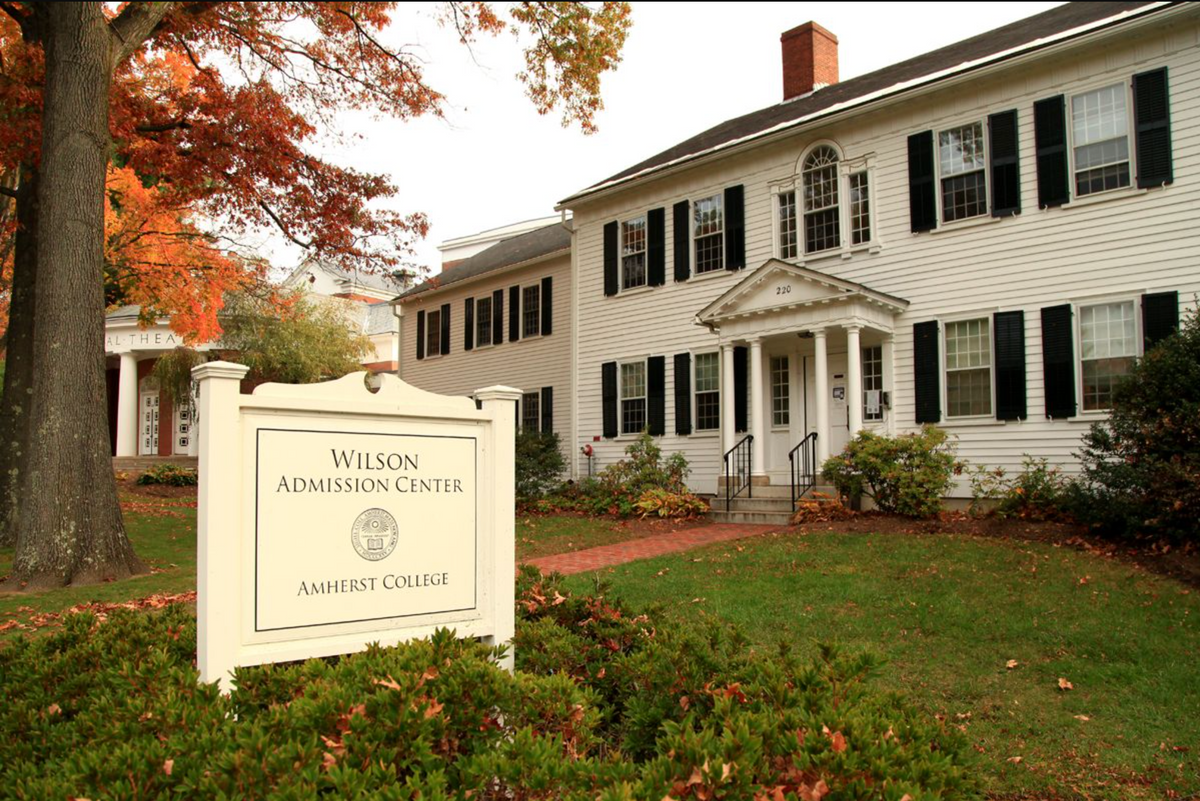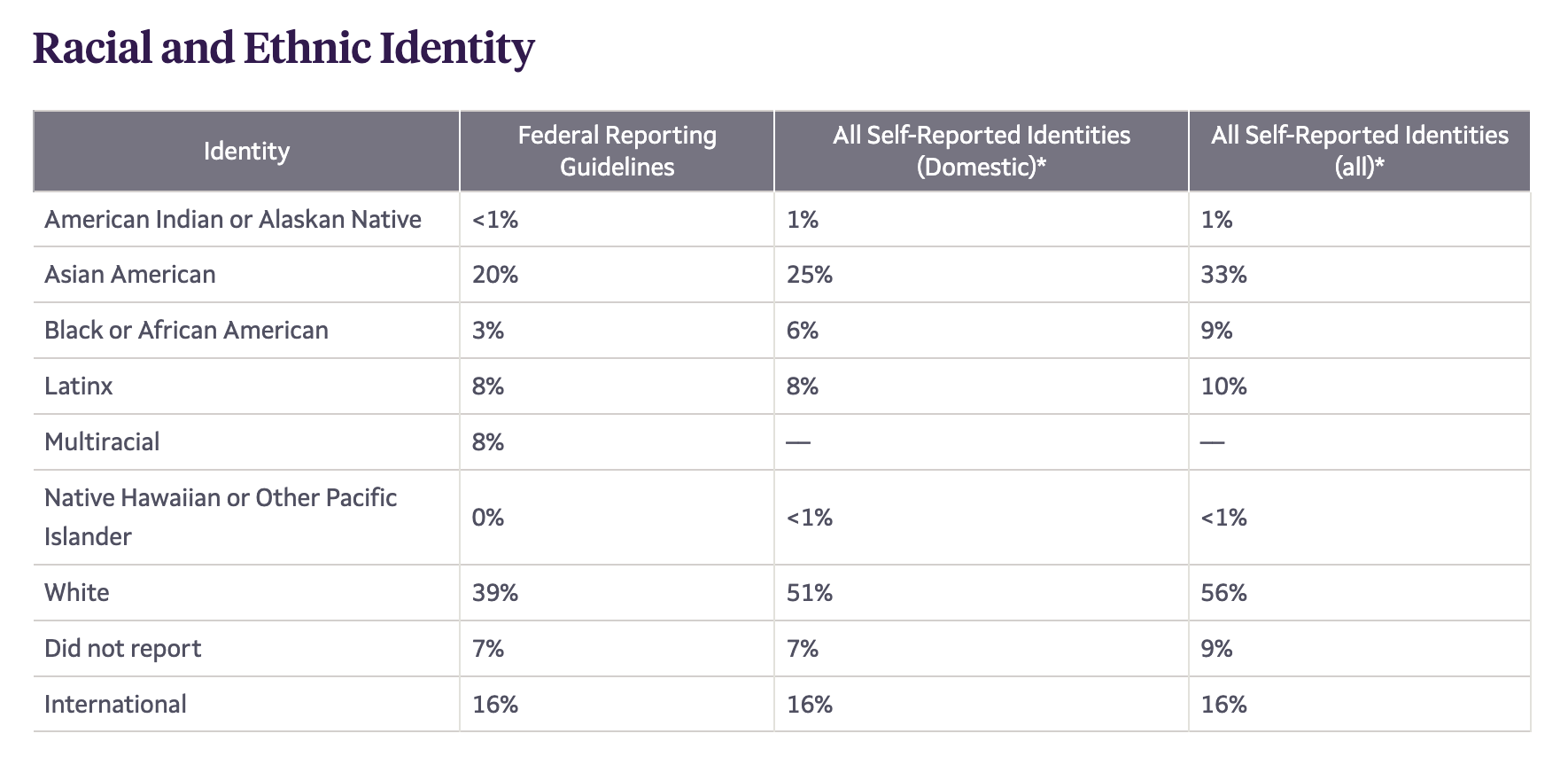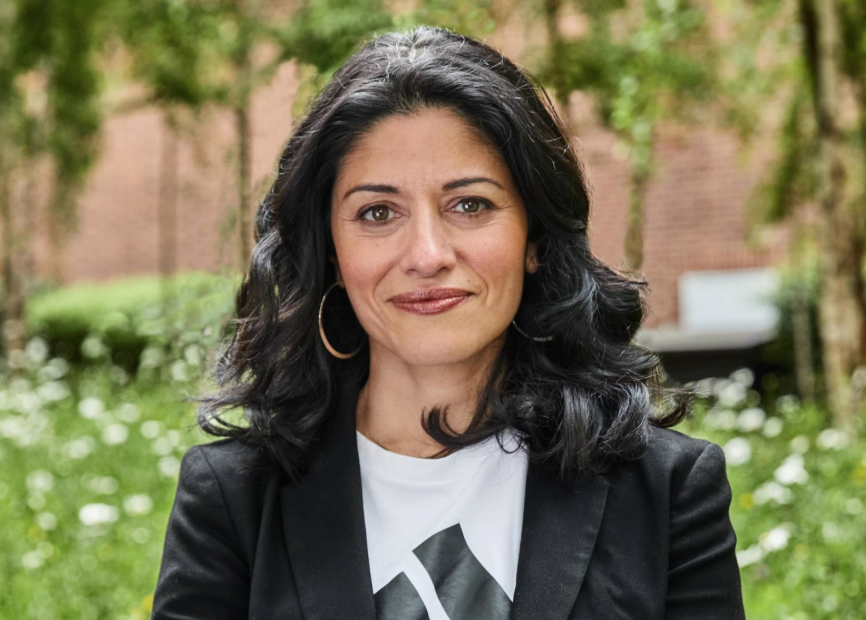Confusion, Anxiety: Students React to 2028 Demographics
Assistant Features Editor Nife Joshua ’26 gathered student reactions to demographic shifts in the class of 2028. Many were concerned about the decrease in diversity and its threat to communities of color.

“The decrease in student diversity makes me feel concerned that the critical learning experience of tolerance and empathy will decrease in this school.”
This was one of many students’ reactions to the changes in student demographics for the 2024-2025 academic year. From the class of 2027 to the class of 2028, there was a drop in self-identified US students of color, from 47% to 38%. Under federal reporting guidelines, there was a 6% increase in white students, a 2% increase in Asian students, a 4% decrease in Latinx students, and the most drastic change was in the number of black students in the first-year class, which dropped from 11% to 3%.
These marked differences in Amherst’s diversity, mirroring other schools around the country, occurred following the June 2023 Supreme Court ruling that determined race-conscious admissions practices to be unconstitutional. In light of the ruling, Amherst’s administration has emphasized its continued commitment to diversity in its student body and has been outspoken in its disagreement with the decision. Despite this, Amherst’s first-year class’ decrease in diversity is larger than many of our peer institutions'.

As The Student continues to cover the change in demographics from an admissions and administrative standpoint, we also wanted to provide a space for reactions from current students.
Over the course of two weeks, we collected student reflections through interviews, a submission box in Valentine Dining Hall, and a Google Forms response. The general themes included disappointment about changed campus dynamics and general uncertainty about the future. They expressed concerns about the continued vitality of communities of color, additional pressure on students from marginalized groups, less robust class discussions, and changing perceptions of Amherst itself. Others thought it was too early to tell. Here are some of their responses:
Concerns about community
“What’s really special about the Black community at Amherst is that you don’t only find a community within your class year … it’s also between people who are older and younger than you. When there are fewer Black students, you also feel as if you have more of an obligation to represent the best …
It’s kind of sad because for the new students, this might seem normal, but for us, it feels very different.” — Fiona Yohannes ’25 (in an interview)
“When receiving the demographics for class of 2028 I almost shed a tear because how could there only be at max 9% of Black students in our class?” — Anonymous
“Why is there no diversity in this class? There haven’t been a lot of new Muslim students this year?” — Anonymous
“Everywhere I look, the class of 2028 has very few Southeast Asian students. Southeast Asian representation was already negligible to begin with but has worsened. The loss of true pan-Asian representation is disheartening.” — Phuong Doan ’26
“I don’t blame the class of 2028 because they have no say in the admission process, but I have already noticed how much Amherst culture has shifted … Not only do many in the new class come from more privileged backgrounds, but they also don’t seem to be as culturally or politically active as previous years … I’m worried about how much this will affect Amherst’s culture and social scene because it relies heavily on the voices and experiences of our POC, queer, and low-income students.” — Anonymous
“It feels early to determine how the campus environment has changed. I’m hopeful for more intentional action towards building a diverse campus community.” — Anonymous
“I would say the changes in the demographics is not that obvious … from mere observation, but it becomes more obvious when I’m in spaces/groups/clubs that are identity-based like [African & Caribbean Students’ Union] (ACSU), [Black Students Union] (BSU).” — Anonymous
“I’m very disappointed in the diversity within the class of [20]28. I feel like my community is already not very represented on campus (I’m Cambodian) and this year it feels even smaller and unrecognized. Be better or else we’re fucked.” — Anonymous
Changed perceptions of Amherst
“During orientation, I was surprised by the lower percentage of Black freshmen ... I chose Amherst for its high Black student percentage, but I worry that this will diminish as older classes graduate.” — Sobechi Igweatu ’28
“I’m upset about the significant decrease in Black students … This drop affects how my family and friends view Amherst, despite my personal love for the school.” — Anonymous
“The demographic difference was immediately obvious and it made me worry about [people from] marginalized backgrounds that may feel hesitant to apply.” — Anonymous
“I guess I didn’t really think about it that much, but it’s crazy to think that if this had happened four years ago I may not have gotten into Amherst.” — Anonymous
Diverse learning environments
“Diversity is crucial for fostering a range of perspectives and challenging assumptions. Without [diversity], our campus risks becoming an echo chamber.” — Anonymous
“It’s definitely a unique feeling being able to bond and find common ground with people who are otherwise very different — perhaps more special than meeting people similar to me. I have felt less of that this semester, but I can’t be sure until I continue meeting more people.” — Hank Hsu ’27
“Reducing the number of students of color limits our ability to challenge assumptions, as exposure to diverse backgrounds and cultures is integral to understanding experiences and societal dynamics.” — Anonymous
“I’m not completely sure how the case changed the campus undercurrent … but I do know that the ruling has severely affected Amherst’s push to diversify this campus … The school’s intention to create a holistic classroom experience is dependent on a myriad of voices from different backgrounds — an intersection of identity that is not present beyond these discussions.” — Anonymous
Concerns for administration
“When I first saw the numbers, it wasn’t surprising because I knew it was going to decrease. When other schools started putting out their numbers, we’re definitely an outlier compared to schools in the NESCAC or more selective ones nationwide.” — Adam Johnson-Hill ’25, Senior Chair of the Black Student Union and Diversity Outreach Intern (in an interview)
“I wonder then what more I can do to make the Black students on campus feel more welcome. At the same time, I’m a student with limited time and energy resources; so I wonder what more the college might do to openly address this issue if it values Black students.” — Anonymous
“I was an Orientation Leader, and my first impression was that my squad was awesome and very diverse geographically, which I think is great because we got a wide variety of perspectives. I’m not sure if the campus environment has really changed, but I do think the college has the burden to recruit students from diverse backgrounds, like by working with [high school] guidance counselors in low-income communities, because it’s not inevitable that we would see … such a large drop in Black Students. Other institutions like Yale did not see similar drops in Black students.” — Rizwan Ayub ’27
“Are we gonna have anymore black students at the end of it all? What is Amherst College doing about it? This campus literally has a countable number of black people, like what?” — Anonymous
Lived experience on campus
“Wow. Very white. What happened? I think the campus environment feels very alienating. I get a lot of side eyes more often. I’m not sure about the future, but I’ve heard they’re doing better with diversifying admissions.” — Anonymous
“I’m scared because no one is really willing to talk about the shifting environment (at least among my friends).” — Anonymous
“I’m not quite sure how this affects the campus environment right now, but I imagine that in the coming years, the campus might not focus as much on issues that minority/low-income students experience. As a low-income student, I wonder if this change in demographic will make low-income/minority students feel less empowered and capable, since more of their peers will presumably be more prepared academically and career-wise.” — Anonymous
“The level of diversity has decreased slightly but not too much. ” — Anonymous
“It was definitely noticeable when I first came to campus during orientation and most of the people on campus were first years — it made me feel much more out of place as a POC here, especially while interacting with orientation groups.” — Anonymous
“I am worried that the campus environment may shift towards more self-separation by racial identity. While this is an understandable reaction to preserve communities, Amherst defends diversity so that students benefit from studying alongside people of all different creeds. Amherst’s efforts can only go so far without breaking the law.”— Anonymous




Comments ()